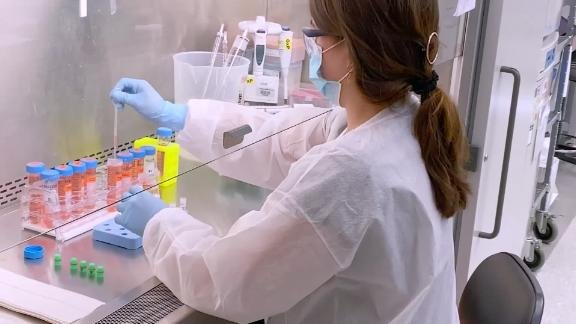Potential coronavirus vaccines show promise, unanswered questions remain

On Monday Biotechnology firm Moderna came out with new preliminary data on its vaccine against the coronavirus. The company announced that Phase 3 of its study reflected a vaccine efficacy of 94.5%. It also announced it intended to "submit for Emergency Use Authorization," with the Food and Drug Administration in the coming weeks.
The announcement was made one week after Pfizer and BioNTech announced a vaccine efficacy rate above 90%, with a study that included more than 43,000 people.
"Both of those are quite a bit higher than the typical flu vaccine, for example, which is often only 60% or 70% effective, so that’s very, very good news," said Eisenhower Health Chief Medical Officer, Dr. Alan Williamson.
Local health experts believe that the trial is particularly promising because thousands of people took part in the study. Despite a sign of hope and progress, experts said there is a lot that needs to be done before vaccines could be disseminated to the public.
"The only downside to this is it's preliminary news in both cases. We will still have to see really what the data tell us in terms of effectiveness, in terms of safety, and in terms of a number of other elements," said University of California, Riverside Sociology and Public Policy professor, Richard Carpiano, Ph.D.
Health experts believe it's good news, but they are encourage 'cautious optimism,'
"Both do have a few more steps to go through in terms of follow-up of the patients several months after the injection-- to be sure there’s no late side effects," said Dr. Williamson.
Vaccinations can take years to develop, and often will need to go through a rigorous set of curriculum before receiving FDA approval. As the pandemic stretches into its 9th month, many of those efforts are being fast-tracked.
Many processes still remain in place to ensure safe vaccines, but the simple asset of trials over extended periods of time will likely be shorter than normal.
"We’re going to have to accept a little more risk than we might traditionally do because we’re really dealing with a pandemic that’s causing a tremendous amount of illness," said Dr. Williamson.
As of Monday, the virus claimed more than 246,000 deaths across the United States.
Every year millions of Americans receive a flu shot. Vaccine renewal is often needed because viruses responsible for influenza have the potential to mutate, or a person's antibodies to fight off the virus can decline with time. There are now questions of whether a similar situation can be translated to COVID-19.
"Unfortunately it’s far too early for us to answer any of those questions but those are certainly concerns that we need to continue to follow as we watch this go on. The hope would be if we could really essentially deliver a knock out punch and really get this disease under control by getting a large swath of the population vaccinated," said Dr. Williamson.
Even when a vaccine becomes available, it'll likely take time to disseminate.
"Now the question is how to deploy, who will be vaccinated first? There are a lot of logistics that have to be worked out," said Desert Regional Medical Center Director of Infectious Disease, Dr. Shubha Kerkar.
Vaccinations will first likely be distributed among at-risk populations and healthcare workers.
"If the vaccine comes out tomorrow, hypothetically, it’s not going to be a magic savior to every single problem we’re facing with the pandemic," said Carpiano.
In the meantime health experts say there is still a simple, effective way to curb transmission.
"It’s very good news that we will have a vaccine. However, at this time what we need to continue to do is masking, social distancing, and avoiding crowds in order to reduce transmission, hospitalizations and deaths," said Dr. Kerkar.
